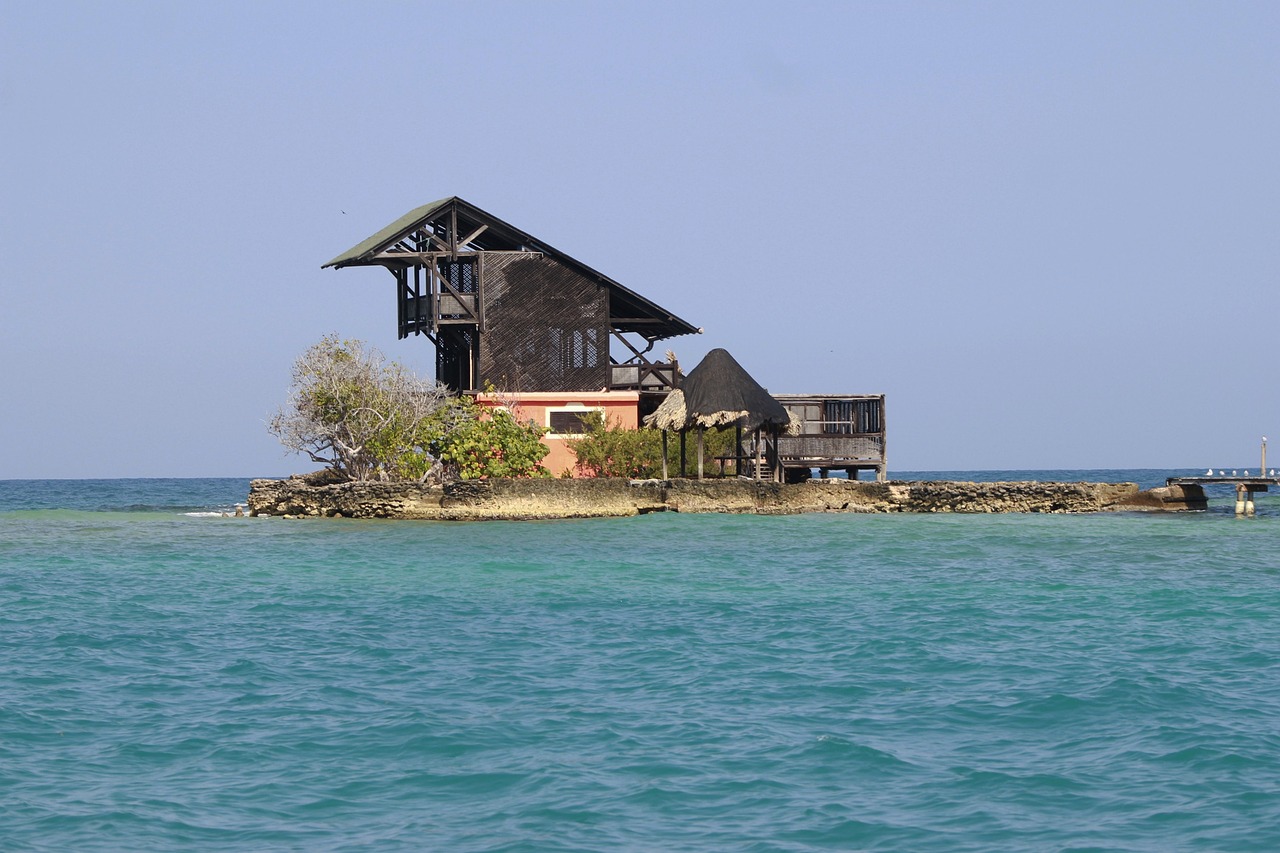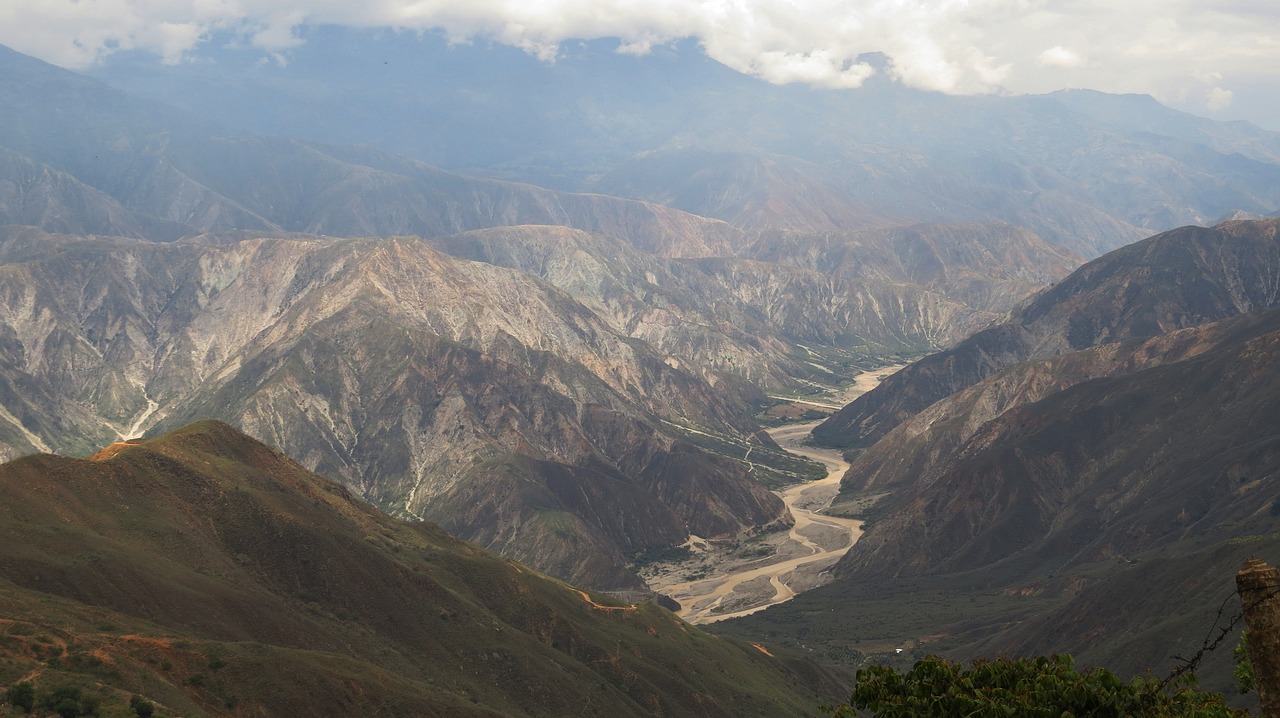Colombia Video
Managing Finances and Payments while Working in Colombia
Colombia is a vibrant and diverse country in South America that offers numerous opportunities for professionals and entrepreneurs. If you are considering working in Colombia, it is essential to understand how to effectively manage your finances and payments in the country. This article will provide you with a comprehensive guide on navigating the financial landscape in Colombia, including banking options, payment methods, taxes, and cost of living.
Colombia Image 1:

Section 1: Opening a Bank Account
When working in Colombia, it is advisable to open a local bank account to facilitate financial transactions and manage your money efficiently. To open a bank account, you will typically need the following documents:
- Valid Passport: You will need a valid passport to prove your identity.
- Visa or Work Permit: Depending on your status in Colombia, you may be required to provide a visa or work permit.
- Proof of Address: Banks may require proof of your local address, such as utility bills or rental agreements.
- Income Proof: Some banks may request documents to verify your source of income, such as pay stubs or employment contracts.
Once you have gathered the necessary documents, you can visit a local bank branch to initiate the account opening process. It is recommended to research different banks and compare their services, fees, and requirements before making a decision. Popular banks in Colombia include Bancolombia, Davivienda, and BBVA Colombia.
Section 2: Payment Methods
In Colombia, various payment methods are widely accepted, including cash, debit cards, credit cards, and mobile payment apps. Here are some popular payment methods you can use while working in Colombia:
- Cash: Cash is widely accepted in Colombia, especially for smaller transactions and in more remote areas. It is advisable to carry some cash for convenience.
- Debit Cards: Debit cards issued by local banks can be used for purchases at most establishments. Ensure your debit card has the necessary international payment capabilities.
- Credit Cards: Major credit cards like Visa and Mastercard are widely accepted in Colombia. However, it is essential to inform your credit card provider about your international travel plans to avoid any issues with transactions.
- Mobile Payment Apps: Mobile payment apps like Nequi and DaviPlata are popular in Colombia. These apps allow you to link your bank account and make payments using your smartphone.
It is important to note that while payment methods are widely available, some smaller establishments or vendors in rural areas may only accept cash. It is always beneficial to carry a mix of payment options to ensure you can make transactions conveniently.
Colombia Image 2:

Section 3: Taxes
When working in Colombia, you are required to pay taxes on your income. The tax system in Colombia is progressive, meaning that higher income earners are subject to higher tax rates. Here are some key points to consider regarding taxes in Colombia:
- Tax Identification Number (NIT): As a foreign worker, you will need to obtain a Tax Identification Number (NIT) from the tax authority, known as the Dirección de Impuestos y Aduanas Nacionales (DIAN). This number is essential for filing taxes and conducting financial transactions.
- Income Tax: Income tax rates in Colombia range from 0% to 35%, depending on your income level. It is advisable to consult with a tax professional or accountant to ensure compliance with tax regulations and take advantage of available deductions and credits.
- Value Added Tax (VAT): Colombia has a Value Added Tax (VAT) system, which applies to most goods and services. The standard VAT rate is 19%, but certain goods and services may have reduced rates or exemptions.
- Annual Tax Return: Individuals with Colombian-sourced income are required to file an annual tax return. The deadline for filing taxes in Colombia is typically in April of the following year.
It is highly recommended to seek professional advice from a tax specialist or accountant to ensure compliance with Colombian tax laws and maximize your tax benefits.
Section 4: Cost of Living
Understanding the cost of living in Colombia is crucial for effectively managing your finances. The cost of living can vary depending on the city or region you choose to work in. Here are some general aspects to consider:
- Housing: Rental prices for apartments or houses can vary significantly depending on the location, size, and amenities. Major cities like Bogotá and Medellín tend to have higher rental costs compared to smaller towns.
- Transportation: Public transportation options, such as buses and the metro, are affordable in Colombia’s major cities. Taxis and rideshare services like Uber are also available, but the costs can vary depending on the distance and time of day.
- Groceries and Dining: Supermarkets and local markets offer a variety of affordable food options. Eating out at restaurants or cafes can range from budget-friendly to higher-end establishments.
- Healthcare: Colombia has a mix of public and private healthcare systems. Public healthcare is available to residents and is generally more affordable, while private healthcare offers more comprehensive services but at a higher cost.
It is advisable to research the specific city or region where you plan to work to get a better understanding of the cost of living and budget accordingly.
Colombia Image 3:

Section 5: Exchange Rates and Currency
The official currency of Colombia is the Colombian Peso (COP). It is important to stay updated with the exchange rates if you need to convert currencies. Here are some key points regarding exchange rates and currency in Colombia:
- Exchange Rates: The exchange rate between the Colombian Peso and other currencies fluctuates daily. It is advisable to check the current rates before exchanging money.
- Currency Exchange: Currency exchange services are available at banks, exchange offices, and some hotels. Banks generally offer competitive rates, but it is recommended to compare rates and fees before making an exchange.
- ATMs: ATMs are widespread in Colombia, and most accept international cards. However, it is advisable to use ATMs located within bank premises for security reasons.
When dealing with currency exchange, be cautious of potential scams or unauthorized exchange services. It is best to use reputable establishments and consult with your bank for guidance if needed.
Section 6: Insurance
Having comprehensive insurance coverage is essential when working in Colombia. Here are some types of insurance you should consider:
- Health Insurance: Colombia has a mandatory health insurance system for residents, known as the Sistema de Seguridad Social en Salud. It is advisable to obtain private health insurance to supplement the public system and ensure adequate coverage.
- Travel Insurance: If you are a foreign worker or planning to travel frequently, it is recommended to have travel insurance that covers medical emergencies, trip cancellations, and other unforeseen events.
- Property Insurance: If you own or rent a property in Colombia, consider obtaining property insurance to protect against theft, damage, or natural disasters.
- Liability Insurance: Depending on your profession or business activities, liability insurance can provide protection against claims or lawsuits.
It is important to carefully review insurance policies, coverage limits, and exclusions to ensure they meet your specific needs.
Section 7: Financial Planning
Developing a solid financial plan is crucial for long-term financial stability while working in Colombia. Consider the following aspects when creating your financial plan:
- Budgeting: Establish a budget that accounts for your income, expenses, savings goals, and debt payments. This will help you manage your finances effectively and avoid overspending.
- Savings and Investments: Set aside a portion of your income for savings and consider investing in long-term financial instruments like retirement accounts or mutual funds.
- Emergency Fund: Build an emergency fund to cover unexpected expenses or income disruptions. Aim to save at least three to six months’ worth of living expenses.
- Retirement Planning: Plan for your retirement by contributing to retirement accounts or pension plans. Consult with a financial advisor to determine the best options for your situation.
Regularly review and adjust your financial plan as your circumstances change to ensure you stay on track towards your financial goals.
Section 8: Financial Assistance and Resources
If you need assistance or guidance in managing your finances while working in Colombia, several resources are available:
- Financial Advisors: Consider consulting with a qualified financial advisor who specializes in international financial planning or expat financial services.
- Embassies and Consulates: Your country’s embassy or consulate in Colombia can provide information on financial services and resources available to foreign workers.
- Online Communities: Join online forums or communities where expats and foreign workers share their experiences and offer advice on financial matters in Colombia.
These resources can provide valuable insights and support to help you navigate the financial landscape in Colombia effectively.
Section 9: Cultural Considerations
Understanding the cultural norms and customs in Colombia can also impact your financial management. Here are some cultural considerations to keep in mind:
- Tipping: Tipping is customary in Colombia, especially in restaurants and for services like taxis or hairdressers. It is customary to tip around 10% of the total bill.
- Negotiating Prices: In certain situations, such as street markets or informal vendors, negotiating prices may be acceptable. However, it is not common in most formal establishments.
- Etiquette: Familiarize yourself with Colombian etiquette, such as greeting others with a handshake or a kiss on the cheek, as this can impact professional relationships and social interactions.
Respecting and adapting to local customs will help you integrate better into the Colombian culture and build positive relationships.
Section 10: Image 1

Section 11: Image 2

Section 12: Image 3

Conclusion
Managing finances and payments while working in Colombia requires careful planning, understanding of the local financial landscape, and compliance with tax regulations. By opening a local bank account, utilizing various payment methods, staying informed about taxes and the cost of living, and having comprehensive insurance coverage, you can ensure financial stability and make the most of your experience working in Colombia. Remember to create a solid financial plan, seek professional advice when needed, and embrace the cultural norms to navigate the financial landscape successfully.
References
– Bancolombia: www.bancolombia.com
– Davivienda: www.davivienda.com
– BBVA Colombia: www.bbva.com.co
– Dirección de Impuestos y Aduanas Nacionales (DIAN): www.dian.gov.co


